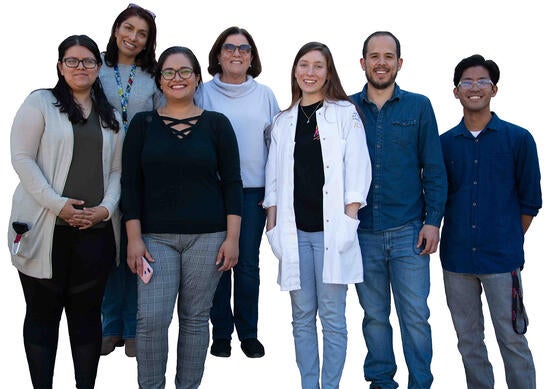Overview
PTRC's mission is to establish efficient procedures for transforming plants of interest to the scientific community and industry. This includes species of economic interest for agriculture and model systems used to investigate gene function. In addition, PTRC also facilitates the research of many scientists who are investigating genes important in metabolic, physiological and developmental processes. Furthermore, our aim is to provide cost-effective access to biochemical and molecular methods for the analysis of genetically modified plants. The center also serves as a resource for students in training.
Accomplishments
-
In vitro plant tissue culture
Certain species that have been reported to be recalcitrant to plant regeneration are now routinely propagated at PTRC. Many protocols have been established for the micro-propagation of many species such as Macadamia, Lolium, Verbena, Citrus, Succulents and different ornamental species.
-
Plant transformation and molecular biology
For the past ten years, PTRC has made significant progress in offering specialized services for producing transgenic events of different species. Over 30,000 transgenic lines of Arabidopsis, tobacco, tomato, potato, canola, rice, poplar, and citrus have been generated expressing one or more than one gene. PTRC has been successful in using cutting edge technologies for gene cloning, transformation, and analysis of gene expression in transgenic plants.
-
Grants
PTRC has been successful at recruiting extramural funding from different private and governmental institutions for research, training of students, and the acquisition of new equipment.
-
Training
UCR students, staff, faculty, and international visiting scholars have been trained in methods for bacterial and plant transformation, molecular biology and imaging techniques for the detection of foreign genes, particle bombardment, and the establishment and growth of transgenic plants in biosafety level 2 (BL-2) greenhouses. The experience gained from working in the laboratory has helped visiting scholars and UCR students in their future career endeavors and facilitated the transition from academics to the industry.
Core Competencies
- Strong technical understanding of plant transformation, in vitro plant tissue culture, molecular biology principles, and methodologies for growing the plants in the BL2 greenhouses
- Devoted attention to facility management including maintenance of a safe motivating work environment
- Proactive and friendly communication style; strong understanding of the importance of professional networks, as well as diversity and inclusion factors that enhance relationships, and collaborations
- Solid awareness of industrialized plant transformation and the importance of academic/industrial partnerships
- In-depth expertise in research areas of global importance for future food security and agricultural productivity
